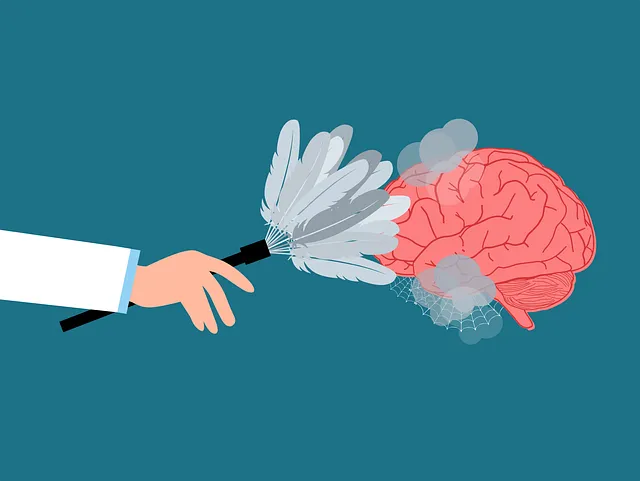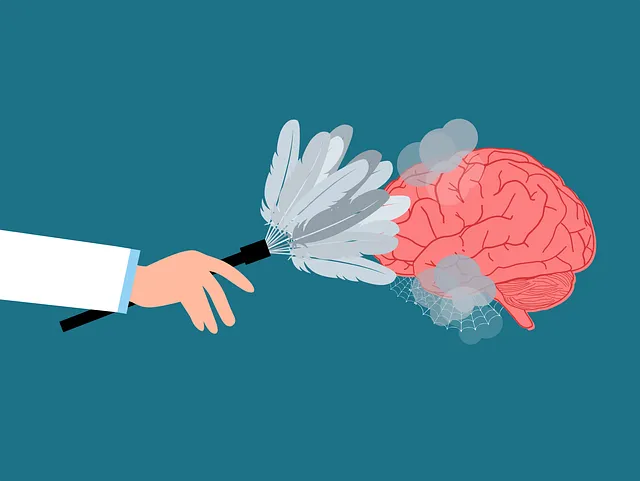Mental wellness self-assessment tools accessible through resources like the Kaiser Permanente psychiatry phone number Boulder empower individuals to take charge of their mental health. Designed by professionals, these tools offer a structured yet personalized approach to evaluating one's mental state, integrating Social Skills Training and Self-Awareness Exercises. By fostering self-reflection and guiding users through emotional responses, thought patterns, and behaviors, these assessments are valuable for navigating the complex landscape of mental wellness. Kaiser Permanente Boulder's model integrates these tools into healthcare systems, promoting active patient engagement and reducing mental illness stigma through accessible resources like online assessments and a dedicated psychiatry phone number.
Mental wellness self-assessment tools play a crucial role in promoting individual awareness and early intervention. This article explores their development, offering a comprehensive guide from understanding their significance to creating effective tools. We delve into a step-by-step process, highlighting best practices informed by successful models like Kaiser Permanente’s approach. Specifically, we examine how such programs can be integrated into healthcare systems, with real-world examples relevant to those seeking support in Boulder, including the Kaiser Permanente psychiatry phone number.
- Understanding Mental Wellness Self-Assessment Tools
- Developing Effective Assessment Tools: A Step-by-Step Guide
- Integrating Self-Assessment in Healthcare: The Kaiser Permanente Model
Understanding Mental Wellness Self-Assessment Tools

Mental wellness self-assessment tools play a pivotal role in empowering individuals to take charge of their mental health and overall well-being. These tools, designed by professionals like those found at the Kaiser Permanente psychiatry phone number Boulder, offer a structured yet personalized approach to evaluating and understanding one’s mental state. They serve as valuable resources for folks seeking support, guiding them through various aspects of their lives that contribute to their mental wellness.
By incorporating elements such as Social Skills Training and Self-Awareness Exercises, these assessments help individuals gain insights into their emotional responses, thought patterns, and behaviors. This proactive approach fosters self-reflection and enables people to identify areas where they might need additional resources or professional guidance. Accessing these tools can be a transformative first step in navigating the complex landscape of mental wellness.
Developing Effective Assessment Tools: A Step-by-Step Guide

Developing effective mental wellness self-assessment tools is a multifaceted process that requires careful planning and execution. The first step involves defining the purpose and scope of the assessment, considering factors such as age groups, cultural sensitivities, and specific mental health concerns prevalent in your target population. For instance, when designing tools for the Boulder community, it’s essential to look into the unique needs and challenges faced by diverse demographics, including youth, adults, and seniors. This understanding will guide the selection of relevant assessment criteria.
Next, gather a multidisciplinary team comprising psychiatrists from Kaiser Permanente Boulder, mental health experts, and potentially, community representatives. Collaboratively, identify validated assessment methods and adapt them to suit local needs. Ensure cultural sensitivity in mental healthcare practice by translating tools into multiple languages if necessary and incorporating culturally specific questions. Additionally, consider integrating confidence-boosting strategies within the assessments to empower individuals to recognize and articulate their emotional states accurately. Public awareness campaigns development can further complement this process by educating communities on mental wellness and fostering an environment where seeking help is normalized.
Integrating Self-Assessment in Healthcare: The Kaiser Permanente Model

Integrating self-assessment tools into healthcare systems is a growing trend, and the Kaiser Permanente model serves as an excellent case study. This leading healthcare organization has been at the forefront of implementing innovative mental wellness initiatives, including a comprehensive self-assessment program. By making these resources readily available, Kaiser Permanente empowers individuals to take an active role in their mental health management.
The model focuses on providing accessible and user-friendly tools, such as online assessments and mobile apps, allowing patients to privately evaluate their mental well-being. This proactive approach has been particularly effective in reducing the stigma associated with mental illness. Through regular self-assessments, individuals can track their symptoms, identify triggers, and seek appropriate support, ensuring timely interventions. The Kaiser Permanente psychiatry phone number in Boulder, Colorado, serves as a central resource for patients requiring professional guidance, complementing the self-assessment process with expert crisis intervention and compassion cultivation practices.
Mental wellness self-assessment tools play a pivotal role in empowering individuals to take charge of their mental health. By understanding common mental wellness metrics and utilizing practical, evidence-based guidelines like the step-by-step development process outlined here, we can create effective assessments. Integrating these tools into healthcare systems, as demonstrated by Kaiser Permanente’s model, enables early intervention and supports holistic patient care. For personalized guidance, considering a consultation with a Kaiser Permanente psychiatry phone number Boulder specialists can be a valuable next step in navigating mental wellness journeys.






